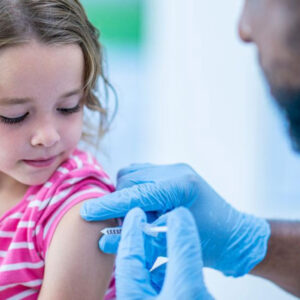How the Media Promotes an Unrealistic Body Image for Teens

With technology expanding rapidly, teens are becoming inundated with advertisements, news stories, and social posts, many containing unrealistic body images. What used to be limited to television and magazines is now right at everyone’s fingertips with a simple swipe or push of a button.
Many parents may find themselves wondering why their teen’s body image seems so far from the norm but the reality it is it is right in front of them every time they are exposed to the media in their daily lives.
With the importance of body image in adolescence and so many growing body image issues in teens, parents may be wondering, “In what ways is the media promoting an unrealistic body image? And how can I promote a positive teen girl body image for my daughter?”
The Media Uses Deceptive Photo Techniques
While airbrushing a photo used to be considered a form of art, with updated photo software technologies available, anyone can touch up a photo to make the subject appear thinner or more perfect than they really are. This can involve everything from removing wrinkles and scars to removing excess fat along the edges of the body. While some of these editing techniques may seem slight such as removing some of the inner thighs off models creating a squared off gap, teens can view these and believe that this is a normal way that their body should look. They may then set unrealistic goals and follow unhealthy habits to be able to achieve the look and appear like the models they see.
The Media Associates Beauty with Thinness
How often does the television show a commercial with a slender, beautiful woman surrounded by friends, smiling, and running into the sunset with her prince charming? This is no coincidence that all of these ads show the perfectly happy ending. The point of an advertisement is to sell a product or service, and the best way to do that is by showing the actor using or wearing it and then showing how great their life is.
Since statistics show that buyers tend to respond to thinner actors and actresses when it comes to buying habits, these are the types of people they cast in their advertisements. This affects a teen’s body image in two ways. First, the teen is made to think that they need this product to fit in, have friends, find love and be happy. Secondly, they believe that those who are the happiest and most popular are those who are traditionally beautiful just like the ad.

Social Media Promotes Competition
While the advertising world is not a big enough assault on body image issues in teens, social media has created a venue for teens to compete on their looks. While many teens and adolescents use social media to stay connected with friends and events, it has also become a medium for posting photos. Photos on social media can be a big concern for a teen girl’s body image as many people will make comments on them. With social media playing a big role in some major cases of bullying, teens are very selective on what photos they put on and will spend a lot of time editing and pose for the right photo shot.
How Do Parents Deal with Body Image in Adolescence?
With limiting technology with your teen becoming more difficult, instead of hiding them from the media’s unrealistic body image it is important for parents to address the issues that a teen may encounter about body image with the media.
- Promote positive body image at home – Don’t obsess about every pound you gain or how poorly clothes fit. Children pick up on everything you do so model good behavior by letting them know everyone’s body is different and beautiful in its own way.
- Promote healthy eating at home – If your teen lives a healthy lifestyle and is taught that food is fuel necessary for the body’s function, they may have a different relationship with it.
- Don’t be dismissive of their feelings – No matter how many times you hear them complain about something regarding body image it is important always to listen. Teens need to know that they are heard and sometimes just expressing their feelings will help them deal with it.
Don’t let the media dictate how your child should feel about their body image. Talk with them openly about having a positive body image and seek out help for them if they continue to struggle.









